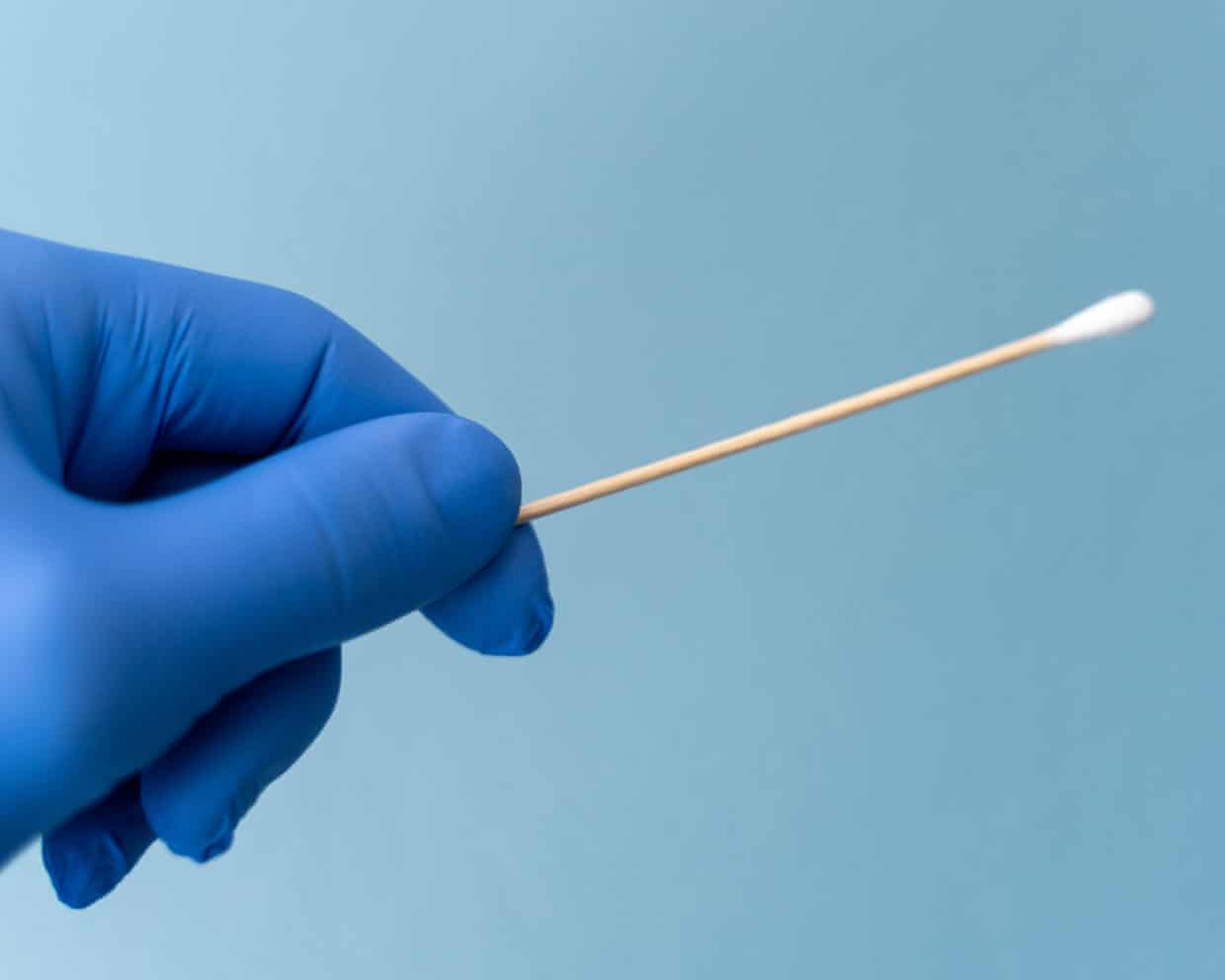Science
Quick Cheek Swab Test Detects Deadly Heart Condition in Kids

A groundbreaking study reveals that a simple cheek swab can identify children at risk of a potentially lethal heart condition, known as arrhythmogenic cardiomyopathy (ACM), up to five years before a traditional diagnosis. This advancement could lead to earlier interventions and improved outcomes for affected children, who are at risk of sudden cardiac death.
The research, presented at the European Society of Cardiology congress in Madrid, highlights that ACM, which is often genetic, accounts for over 10% of sudden cardiac deaths in children. The condition arises from abnormalities in proteins that connect heart cells, impacting the heart’s structure and electrical function. Notably, these protein irregularities can also be detected in the cheek lining.
Innovative Testing Method
Doctors from Great Ormond Street Hospital and City St George’s, University of London developed a two-minute cheek swab test to detect ACM. The study involved 51 children aged between three months and 18 years, all with a known genetic predisposition to ACM. Participants underwent cheek swabs every three to six months over a seven-year period.
Among the group, 10 developed ACM, and the test successfully identified abnormalities in 8 of them before conventional diagnostic methods. A separate group of 21 children without any known genetic risk also showed abnormalities in 5 cases, indicating the test’s broader applicability.
Researchers confirmed ACM diagnoses through advanced scans and tests, positioning the cheek swab as a valuable additional tool for early detection. Dr. Joanna Jager from City St George’s emphasized the need for a quick and accessible test to flag potential ACM cases, which can then be substantiated through further medical evaluations.
Potential to Save Lives
In the UK, approximately one in 10,000 individuals are affected by ACM, with symptoms that may include heart palpitations, fainting, breathlessness, and abnormal heart rhythms. This non-invasive cheek swab offers a risk-free approach to monitoring children who may be at risk.
Dr. Angeliki Asimaki, a reader in cardiac morphology at City St George’s, stated, “Our test provides a window into microscopic changes happening in the heart, and it is totally risk-free and non-invasive. This has the potential to provide accurate and timely diagnosis of ACM, ultimately saving lives.”
The development team is currently working on at-home test kits that would allow children to conduct cheek swabs and send samples for laboratory analysis. This could significantly enhance the testing process and increase accessibility for families.
The research received funding of approximately £1 million from the British Heart Foundation, underscoring the critical importance of early diagnosis. Dr. Sonya Babu-Narayan, the clinical director at the foundation, remarked on the necessity of this research in preventing sudden cardiac events in children. She noted, “This kind of simple, pain-free cheek swab test could identify children in the early stages of ACM who need extra care or provide reassurance to at-risk children and their families with normal test results.”
As the development of this innovative testing method continues, it holds promise not only for early diagnosis but also for better management of arrhythmogenic cardiomyopathy in children, potentially transforming the landscape of pediatric cardiac care.
-

 Science3 months ago
Science3 months agoToyoake City Proposes Daily Two-Hour Smartphone Use Limit
-

 Top Stories3 months ago
Top Stories3 months agoPedestrian Fatally Injured in Esquimalt Collision on August 14
-

 Health3 months ago
Health3 months agoB.C. Review Reveals Urgent Need for Rare-Disease Drug Reforms
-

 Technology3 months ago
Technology3 months agoDark Adventure Game “Bye Sweet Carole” Set for October Release
-

 World3 months ago
World3 months agoJimmy Lai’s Defense Challenges Charges Under National Security Law
-

 Lifestyle3 months ago
Lifestyle3 months agoVictoria’s Pop-Up Shop Shines Light on B.C.’s Wolf Cull
-

 Technology3 months ago
Technology3 months agoKonami Revives Iconic Metal Gear Solid Delta Ahead of Release
-

 Technology3 months ago
Technology3 months agoApple Expands Self-Service Repair Program to Canada
-

 Technology3 months ago
Technology3 months agoSnapmaker U1 Color 3D Printer Redefines Speed and Sustainability
-

 Technology3 months ago
Technology3 months agoAION Folding Knife: Redefining EDC Design with Premium Materials
-

 Business3 months ago
Business3 months agoGordon Murray Automotive Unveils S1 LM and Le Mans GTR at Monterey
-

 Technology3 months ago
Technology3 months agoSolve Today’s Wordle Challenge: Hints and Answer for August 19









